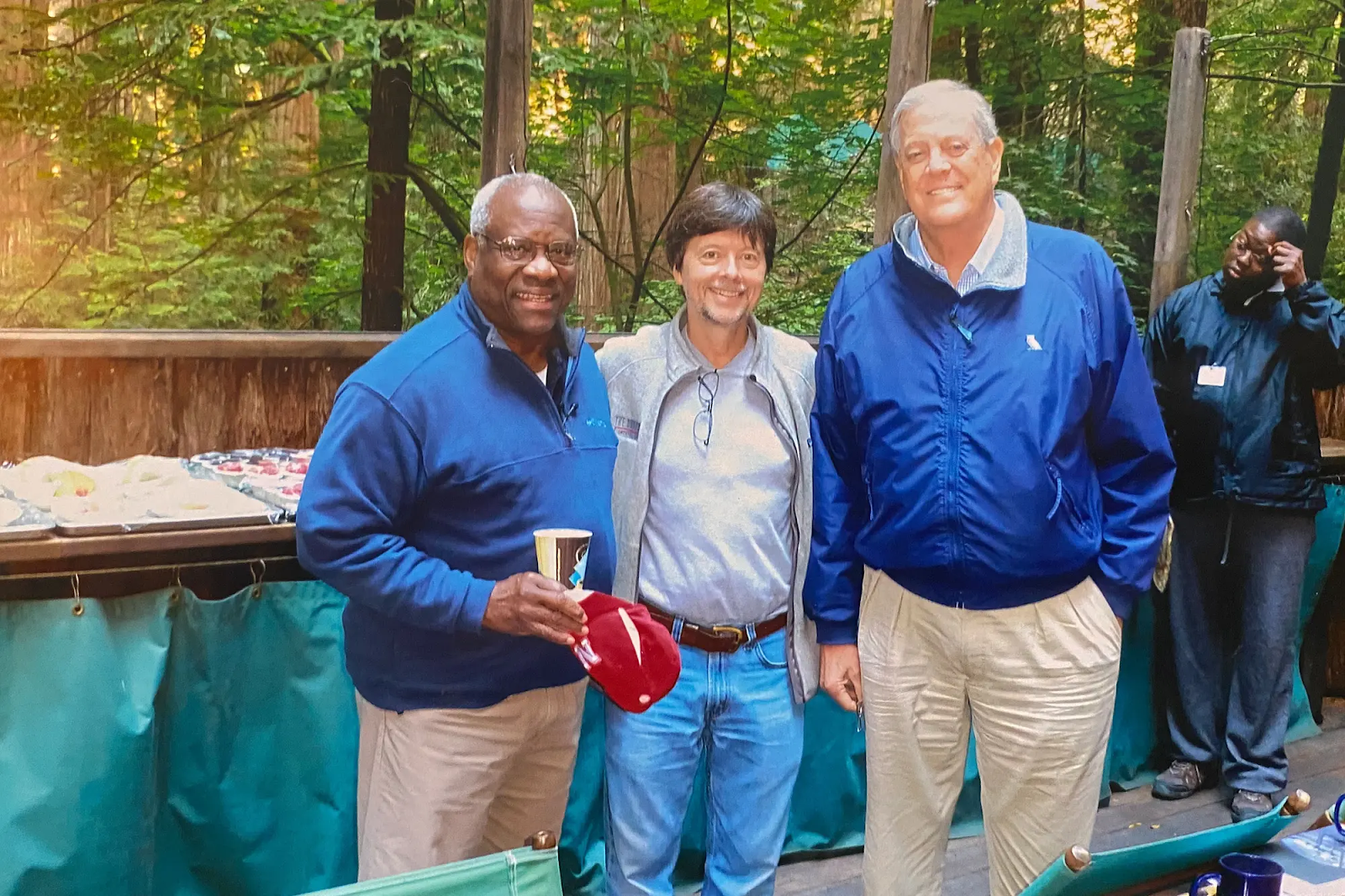The Supreme Court in June 2023 Docket # 22-859 granted certiorari on three questions QUESTION PRESENTED:
1. Whether statutory provisions that empower the Securities and Exchange Commission (SEC) to initiate and adjudicate administrative enforcement proceedings seeking civil penalties violate the Seventh Amendment.
2. Whether statutory provisions that authorize the SEC to choose to enforce the securities laws through an agency adjudication instead of filing a district court action violate the nondelegation doctrine.
3. Whether Congress violated Article II by granting for-cause removal protection to administrative law judges in agencies whose heads enjoy for-cause removal protection.
- GWC 9/28/23
The Jarkesy Decision and Ramifications for Administrative ProceedingsPosted by Robert Stebbins, Abigail Edwards, and Ariel Blask, Willkie Farr & Gallagher LLP, on
Wednesday, June 29, 2022On May 18, 2022, in Jarkesy v. S.E.C., a divided Fifth Circuit panel vacated the Securities and Exchange Commission’s (the “Commission” or the “SEC”) affirmation of an SEC administrative law judge’s (“ALJ”) determination that Jarkesy and Patriot28, LLC committed securities fraud. The panel found that (1) the in-house adjudication of the case violated Petitioners’ Seventh Amendment right to a jury trial, (2) Congress unconstitutionally delegated legislative power to the SEC by authorizing it to determine whether to bring these types of cases in an Article III court or before an ALJ, and (3) the ALJ removal protections violate Article II, Section III (the “Take Care Clause”) of the U.S. Constitution.
Background
The SEC pursued this action through its administrative adjudication process. Initial decisions in administrative proceedings can be appealed to the Commission and Commission decisions can be appealed to the federal court of appeals. That appellate review, however, is limited as findings of fact can only be overturned if they are supported by “substantial evidence” and the Commission’s interpretation of the securities laws may also be entitled to Chevron deference.
Historically, the remedies the SEC could seek against respondents in administrative proceedings were limited and until 1990 the Commission could generally only bring securities fraud actions and seek civil penalties in Article III courts. The SEC was first authorized to impose money penalties in administrative proceedings with the Securities Enforcement Remedies and Penny Stock Reform Act of 1990 but only with respect to entities that were required to register with the SEC, such as broker-dealers.
However, in 2010 the Dodd-Frank Wall Street Reform and Consumer Protection Act (the “Dodd-Frank Act”) expanded the SEC’s authority to bring securities fraud actions and pursue civil penalties against non-regulated entities and individuals in administrative proceedings, instead of Article III courts, whenever the Commission, in its discretion, decided. Following enactment of the Dodd-Frank Act, the SEC did not immediately shift its enforcement efforts to administrative proceedings; however, in 2014, there was a sharp increase in such proceedings and an increase in the complexity of the cases brought in such proceedings. This shift was met with criticism and with constitutional challenges. Commencing in 2018, the Commission’s enforcement division drastically cut back on use of the administrative courts, especially as to litigated enforcement cases in which there was an available concurrent federal court forum for the respective claims.
In response to being sued in the administrative forum, Petitioners brought an action in federal district court, and upon appeal, to the D.C. Circuit, alleging that the proceedings violated their constitutional rights. The D.C. Circuit affirmed the district court’s finding that it lacked subject-matter jurisdiction because Petitioners had failed to exhaust their administrative remedies. Meanwhile, the presiding ALJ had held an evidentiary hearing and concluded that Petitioners had committed securities fraud, and Petitioners sought Commission review of that decision.
****
Right to a Jury Trial
The Fifth Circuit panel concluded that the Commission’s decision to bring the case in front of an ALJ, rather than an Article III court, deprived Petitioners of their “fundamental” right to a jury trial under the Seventh Amendment. That right attaches to “[s]uits at common law,” which include “all actions akin to those brought at common law as those actions were understood at the time of the Seventh Amendment’s adoption.” Congress is only authorized to assign adjudication of such a matter to a non-Article III tribunal (here, an administrative proceeding before an SEC ALJ) if the proceeding centers on a “public right.”
According to the majority, to determine if an action “center[ed] on” a “public right,” a court must first determine whether the underlying claim arises “at common law.” Then, if so, a court must evaluate whether the Supreme Court’s jurisprudence nonetheless permits Congress to assign it to agency adjudication without a jury trial. If the underlying claim arose at common law and Supreme Court precedent does not allow agency adjudication, then the proceeding centers on a public right and cannot be assigned to a non-Article III tribunal. The Fifth Circuit panel, in applying this test, found that the rights that the SEC sought to vindicate arose at common law and that no exception applied that would otherwise allow Congress to assign the case to agency adjudication.
Non-Delegation Doctrine







